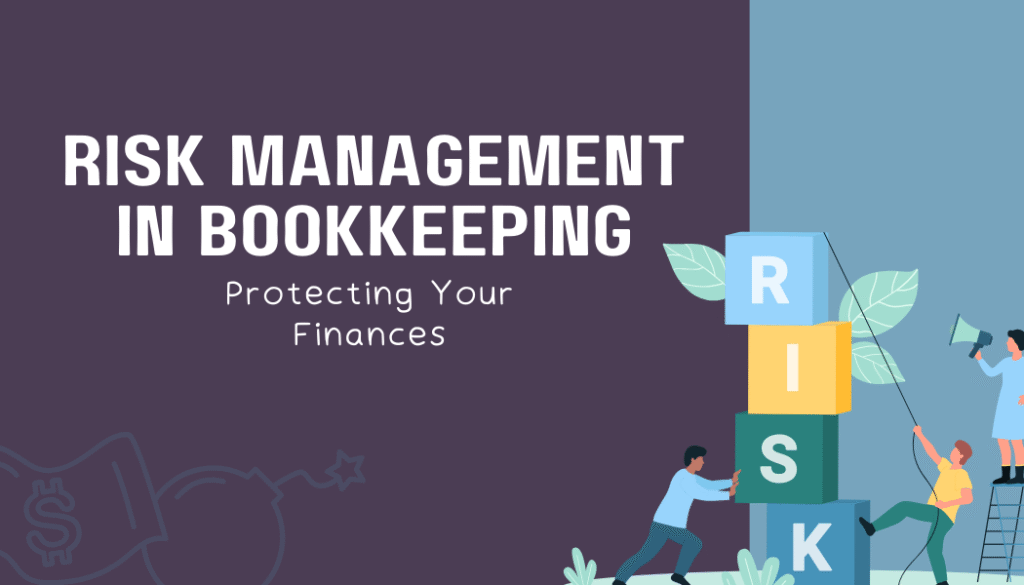
Risk management is a critical aspect of bookkeeping that often goes overlooked. However, understanding and effectively managing risks can help ensure the financial health and stability of your business. In this comprehensive guide, we’ll delve into the importance of risk management in bookkeeping, common risks bookkeepers face, and strategies to mitigate these risks.
Why Risk Management Matters in Bookkeeping
- Financial Stability: Effective risk management can help prevent financial losses, ensuring the stability and sustainability of your business.
- Compliance: Proper risk management ensures that your business complies with relevant laws and regulations, minimizing the risk of fines or legal issues.
- Reputation: Managing risks effectively can help protect your business’s reputation and build trust with clients and stakeholders.
- Operational Efficiency: Identifying and mitigating risks can lead to improved operational efficiency, reducing the likelihood of errors or inefficiencies.
Common Risks in Bookkeeping
- Data Security: The risk of data breaches and cyber attacks is a significant concern for bookkeepers, as they deal with sensitive financial information.
- Errors and Omissions: Mistakes in recording transactions or preparing financial statements can lead to inaccuracies and financial losses.
- Non-Compliance: Failure to comply with tax laws, accounting standards, or regulatory requirements can result in penalties and legal consequences.
- Fraud: Bookkeepers may face the risk of internal or external fraud, such as embezzlement or fraudulent financial reporting.
Strategies for Mitigating Risks
- Implement Strong Internal Controls: Establish internal controls, such as segregation of duties and regular audits, to prevent and detect errors and fraud.
- Invest in Data Security: Use secure software and encryption methods to protect sensitive financial information from cyber threats.
- Stay Compliant: Stay informed about changes in tax laws and regulations relevant to your business and ensure compliance at all times.
- Training and Education: Provide ongoing training and education for your team to keep them informed about best practices and emerging risks.
- Insurance: Consider obtaining professional liability insurance to protect your business against legal claims related to errors and omissions.
- Regular Risk Assessments: Conduct regular risk assessments to identify potential risks and develop strategies to mitigate them.
Conclusion
Risk management is a crucial aspect of bookkeeping that should not be overlooked. By understanding the risks associated with bookkeeping and implementing strategies to mitigate them, you can protect your business’s financial health, reputation, and sustainability. By investing in risk management, you can ensure that your bookkeeping practices are efficient, compliant, and secure.
Not ready to do it on your own?
The QuickBooks Guy offers not just bookkeeping services but also a partnership in your financial journey. With a deep understanding of QuickBooks and a commitment to personalized service, ‘The QuickBooks Guy’ is your ally in navigating the complexities of financial management. By choosing us, you ensure that your business’s financial health is in capable hands, allowing you to focus on growing your business.
Don’t let bookkeeping challenges hold you back any longer. Reach out today at 678-923-5904 or drop an email to TheQuickBooksGuy@gmail.com.




